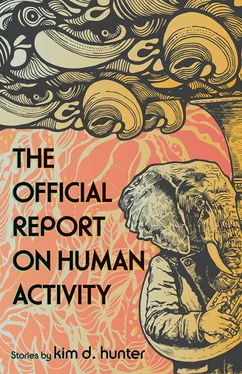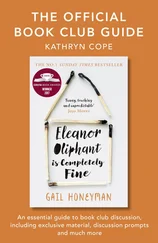He was found in a quite foul state near the church she attended. The pastor of the church took him in and eventually tried help the CEO-to-be to find his home. He even enlisted the aid of the Women’s Auxiliary to supply the man with decent meals. This somehow enraged the woman who’d found the CEO. Her rage blossomed into an altercation that caused her to leave the church. Certainly, she thought she’d seen the last of that particular drunken white man. But, with the help of the pastor, the man was hired by the factory where the woman worked.
One day, in the cafeteria, she was surreptitiously handing out leftist literature. The man was sitting next to another white worker who asked the woman what she was handing out. The inquiring man didn’t wait for an answer but grabbed a flyer. The woman was infuriated but wanted to maintain a low profile. She scowled but said nothing. Our hero suddenly recognized her and was about to speak as she turned to walk away. Then the man who’d snatched her flyer spoke up.
“This seems like some communist stuff to me,” he said with a lilting, melodious southern accent while smirking at the flyer. “They wouldn’t ’low this where I come from.”
“Then why don’t you go back to where you come from?” the woman spat out. “I’ll tell you why,” she retorted before he could answer, “because you wouldn’t have a pot to piss in or a window to throw it out of. That mammy-made Mississippi crap is backwards as the day is long and they got the poverty to prove it. You wanna bring sharecropping and outhouses up here and we ain’t going for it.”
In mere moments, she had removed whatever vestiges of homesickness the man who was to become CEO had. But her seriousness also made his northern days of drinking, gambling, and sex seem all the more wasteful. It was no longer a sin against a God he’d never known, but somehow it still seemed a betrayal. Over and above what she said, the passion of her delivery, the shape of the words that left her mouth, merged with her glorious soft eyes. She was beautiful in a way he could not imagine another woman being beautiful at that moment. Even the color of her skin, which he knew to be an obstacle to his wish fulfillment, was at once unique and immaterial. She was who she was. There could be no one like her and he had to find a way to be with her.
* * *
I gave the union woman’s diary to my biographer. I don’t know if she read it or remembers reading it. I did not see her for a few days afterward. It was a particularly bad moment for the biographer. The father of a child she knew had killed himself. It was unclear how the child discovered her father was dead. It was, as you may have surmised, the Girl who said she deciphered the so-called message on the hide of the small, long elephant birthed by that other truly unfortunate creature. It seemed nothing but tragedy came in his wake.
I vaguely recall some shooting incident perpetrated by a factory worker fired because he was unable to focus on his job. He’d become wholly obsessed with deciphering the “message” on the elephant. In any event, after the Girl’s father died, my biographer returned to her task a changed woman. She was at once more relaxed and, to my great but short-lived relief, less focused on me. If only her state of mind had lasted.
* * *
The Librarian
Coming out of prison, I thought I had a good grip on my perspective. The fact is I pretty quickly fell back into normal mode except for doing whatever it took not to go back in. Then, I found myself holding the Girl, a thirteen-year-old orphan, at her father’s funeral. It was a short affair. The longest part was the drive to the cemetery. A bunch of us got lost. We couldn’t have a car procession, some new ordinance based on cuts to the police budget. I passed the Heidelberg Project, slowed down, wanted to stop, wanted to get lost in the colors and rows and rows of discarded things people once thought were going to make them happy. I got to the gravesite just as they were lowering the casket. The Girl sat in a row of folding chairs in front of the grave, her head buried in someone’s lap.
Later, the woman I recognized as her teacher came up to me with a conspiratorial look. She had arranged for the Girl to visit her and even spend some overnights. The Girl had also requested to visit me. (She had tried to visit me in prison, but couldn’t get a ride.) Sadly, the Girl’s family was only too glad to make the arrangement. I couldn’t figure out why they seemed to want nothing to do with her. But it left me hollow inside.
As you know, I got to spend quite a bit of time with her during the Black Elephant debacle. She told me the whole fairy-tale story of her mother passing away and how much she missed her. The ugly story got an ugly coda when I met her father and discovered he was a true and unique asshole. But she was always anxious to see him at the end of the day and grieved his loss as deeply and profoundly as I have seen anyone grieve.
Having her over was a serious adjustment. As you might guess, I’m not in a palace. What’s more, I never had kids, and now here I am with one going through trauma and puberty (who can tell the difference?) at the same time. It was a good thing school was almost out. At first, all she did was cry and sleep. Now she just writes reams and reams in notebooks. On second thought, school may be better.
Days passed before the Girl talked to me unsolicited. Mostly, she left notes. So I began to leave her notes too, at first about simple stuff. Finally, I took the plunge and asked what she was writing about. That killed the “conversation” for a few more days.
Then, out of the blue, one Saturday afternoon during a late lunch, I turned on the radio. It happened to be the CBC and the opera was on. “ Traviata !” she shouted, pushed back her chair, and began twirling around the room. She grabbed me out of my chair. I tried to waltz with her, barely remembered the moves, and ended up with a sort of polka hybrid. But it worked. We danced around the room until what she later told me was “the drinking song” ended.
“It was my mother’s favorite,” she told me as she plopped back into her chair. Then she was up again, into the bedroom for a few moments, and emerged with two notebooks. They were full of writing, front and back pages, with notes in the margins, and dog-eared, food stained, and, I suspect, tear-stained as well. Every word and paragraph was her mother, what she wore, what she liked to eat, driving habits, education, how she talked when she was excited, the way she held her mouth when something puzzled her, it was all there. I was going to make a joke about seeking out dental records when she asked if doctors gave out information about their patients. Sections of her notebooks reminded me of the interminable list section in Moby Dick but, her intro was good.
My Mother in Words
I wanted to resurrect my mother with words and with what can’t be spoken. You and I will work together. I will make her present. You will draw her picture with the music in your head. I will take you into the rooms where we all danced.
* * *
The CEO
The CEO’s father stumbled back into what he thought was his son’s life like a dazed beast onto a firing range. I, we, recognized him in the hotel vaguely before the air around him pulsed red. I saw him while riding down in a glass elevator from the hotel suite where the event was held, then again from an interior balcony of the hotel. Strange they would dress janitors in white shirts and pants, but there he was with his red-and-blue cap, a broom, a long-handled dust pan, and the hotel’s circular logo on his back.
I was about to discover the instrument and a memory. The former was a cylindrical organ that felt as though it was attached to the base of my spine. That was anatomically impossible, of course. The instrument slept in my throat, efficiently stored and dormant until the proper moment. The memory also slept, but in a far deeper recess.
Читать дальше












